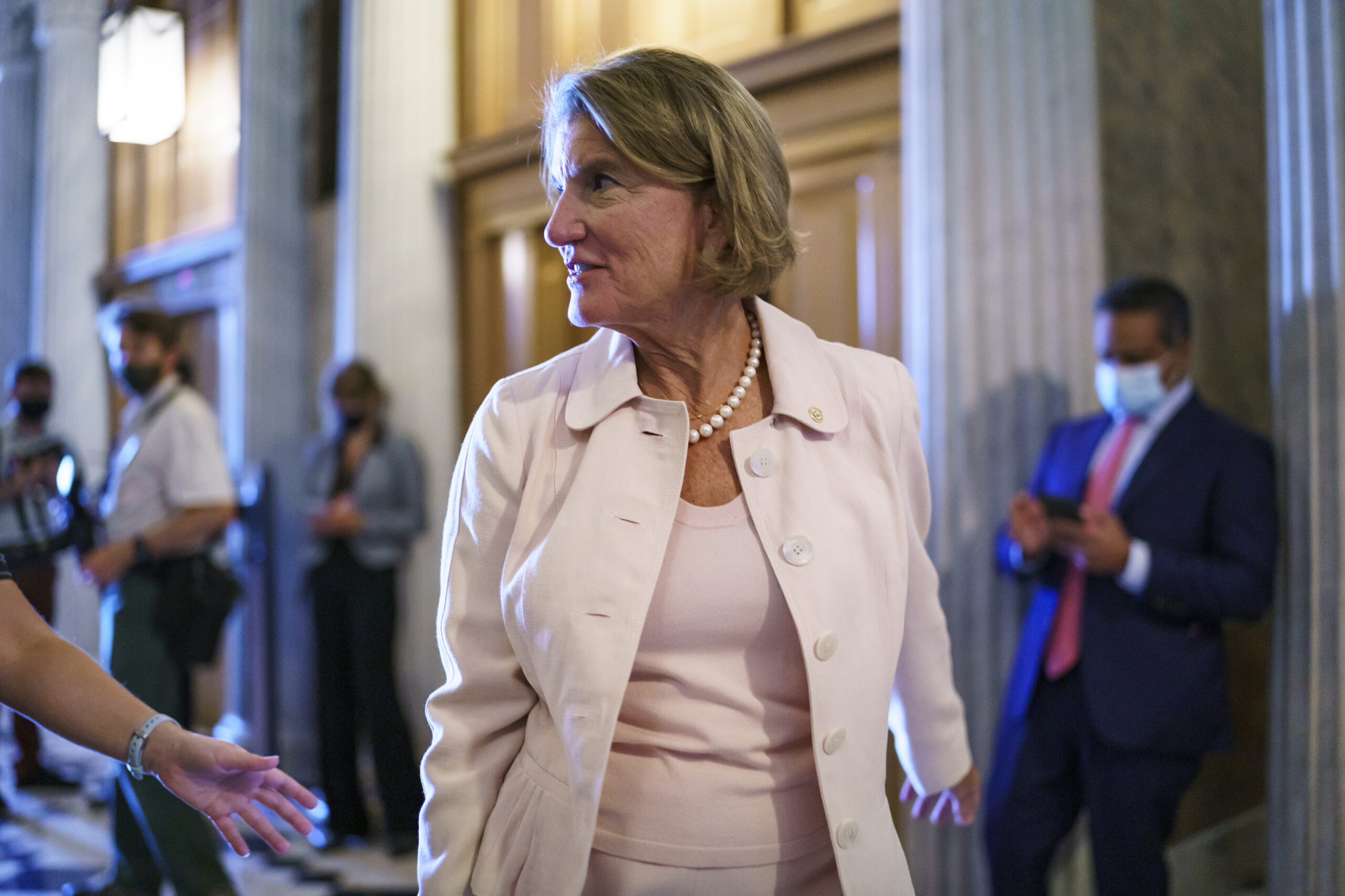MORGANTOWN – Sen. Shelly Moore Capito met with members of the West Virginia press Thursday afternoon to talk about current Senate action.
Senate Majority Leader Chuck Schumer, D-N.Y., reached a deal Thursday with Minority Leader Mitch McConnell, R-Ky., to vote on a limited debt ceiling extension. Capito said the deal doesn’t open the door for Democrats to pass their $3.5 trillion social infrastructure bill – called Build Back Better. It involves about $400 billion – nothing close to what the Democrats want.
All the debt ceiling deal does, she said, is keep the government operating past Oct. 18 to the next deadline, Dec. 3.
The deal, according to The Hill, will allow up to four hours of debate on the debt ceiling extension, followed by a key procedural vote – called cloture – to end debate on the bill, which will require 60 votes. Capito said she would vote for that.
Capito expressed frustration that the $1.2 trillion bipartisan traditional infrastructure bill is being held hostage in the House, where liberal and progressive Democrats want the $3.5 trillion bill also passed.
She noted that the House has given itself to the end of October to vote on the $1.2 trillion bill.
Sen. Joe Manchin has said he won’t support the $3.5 trillion package but is willing to entertain a $1.5 trillion figure. In light of that, Capito was asked if there are elements of the larger bill she could support.
She said there are a number of things West Virginians would welcome: free community college and daycare, parental leave, expansions of Medicare. But the right way to go about it is to look at those needs in bipartisan manner, not pass a partisan spending spree. “There is no number at which I can support this.”
One element she loathes is the much-talked-about proposal to report every banking transaction of $600 or more to the IRS. “In my view that is Big Brother coming to your doorstep.”
Capito also noted her push for reauthorization of Violence Against Women Act. It needs to be modernized, she said, and she wants to see funding for shelter help and support in the rural areas, where women don’t have easy access to assistance.
A Capito press release gives some background on the act. It was enacted in 1994 to support survivors of domestic and sexual violence. It made federal resources available for programs that assist victims of domestic violence, sexual assault, dating violence and stalking, including children, teenagers, the elderly, persons with disabilities and Native Americans. The legislation has been reauthorized multiple times since 1994, but expired in 2018.
Tweet David Beard @dbeardtdp Email dbeard@dominionpost.com




